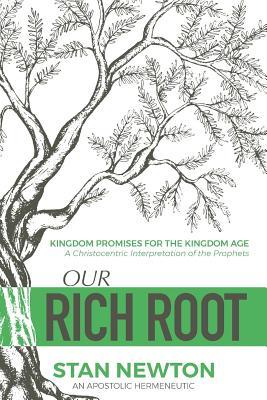This book was birthed out of a perceived necessity. If the arguments and conclusions found here are wrong or in need of correction, hopefully that will spur more discussion of this vital subject. The necessity for me was to challenge the church and avoid a major pitfall in our kingdom theology; namely, to rip the Old Testament out of our consideration. This can happen in two ways. First, for several generations dispens-ational theology has made the prophecies of the Old Testament void, by stealing them from the true people of the kingdom - the church; and assigning them to a future age - the 1,000-year millennium. The second problem is a conviction that everything was fulfilled in Christ. Why is this a problem? If the words of the Prophets cannot be applied to the advancing kingdom of God, in and through the church, we lose a great treasure of prophetic word. The church must be built upon a foundation of hope and that foundation is first found in the Old Testament Prophets. Both positions are inconsistent with what the apostolic authors of the New Testament wrote and declared as central to the Christian faith. I will restate my conviction. I am not backtracking on my conclu-sions in Glorious Covenant; one-hundred percent of the old cove-nant is obsolete and no longer has any binding authority over the church. Yet, there is a major difference between saying that the old covenant is no longer valid and saying the entire Old Testament has become obsolete. The entire Old Testament is useful and needed. We will make a mistake if we conclude the entire Old Testament is the old covenant. The old covenant is the Mosaic Law. There are portions of Scripture in the Old Testament, especially in the prophets, that speak to the new covenant and the present kingdom of God. When seen through the finished work of Christ, these passages add vision and revelation to the church as we advance the kingdom of God on the earth. They reveal where we are going. They are more than helpful; they are necessary. Our Rich Root will be divided into two sections. The first section will address foundational issues, which are more theological in nature. The second will be a sampling of Old Testament prophecies and how they can be applied to the church. The second section is more exegetical. Summary: Our Rich Root is an extensive look at the meaning and implications of the Olive Tree in Romans 11. The church benefits from the covenants and prophetic words found in the Old Testament. This book is a balance between theology and exegesis which will assist Christians in enlarging their understanding of God's promises. The Kingdom has arrived, therefore it should not be a surprise to us that all the promises for the kingdom are available for the people of God.

Our Rich Root: Kingdom Promises for the Kingdom Age
This book was birthed out of a perceived necessity. If the arguments and conclusions found here are wrong or in need of correction, hopefully that will spur more discussion of this vital subject. The necessity for me was to challenge the church and avoid a major pitfall in our kingdom theology; namely, to rip the Old Testament out of our consideration. This can happen in two ways. First, for several generations dispens-ational theology has made the prophecies of the Old Testament void, by stealing them from the true people of the kingdom - the church; and assigning them to a future age - the 1,000-year millennium. The second problem is a conviction that everything was fulfilled in Christ. Why is this a problem? If the words of the Prophets cannot be applied to the advancing kingdom of God, in and through the church, we lose a great treasure of prophetic word. The church must be built upon a foundation of hope and that foundation is first found in the Old Testament Prophets. Both positions are inconsistent with what the apostolic authors of the New Testament wrote and declared as central to the Christian faith. I will restate my conviction. I am not backtracking on my conclu-sions in Glorious Covenant; one-hundred percent of the old cove-nant is obsolete and no longer has any binding authority over the church. Yet, there is a major difference between saying that the old covenant is no longer valid and saying the entire Old Testament has become obsolete. The entire Old Testament is useful and needed. We will make a mistake if we conclude the entire Old Testament is the old covenant. The old covenant is the Mosaic Law. There are portions of Scripture in the Old Testament, especially in the prophets, that speak to the new covenant and the present kingdom of God. When seen through the finished work of Christ, these passages add vision and revelation to the church as we advance the kingdom of God on the earth. They reveal where we are going. They are more than helpful; they are necessary. Our Rich Root will be divided into two sections. The first section will address foundational issues, which are more theological in nature. The second will be a sampling of Old Testament prophecies and how they can be applied to the church. The second section is more exegetical. Summary: Our Rich Root is an extensive look at the meaning and implications of the Olive Tree in Romans 11. The church benefits from the covenants and prophetic words found in the Old Testament. This book is a balance between theology and exegesis which will assist Christians in enlarging their understanding of God's promises. The Kingdom has arrived, therefore it should not be a surprise to us that all the promises for the kingdom are available for the people of God.